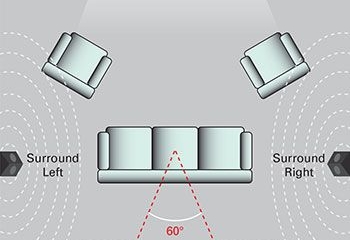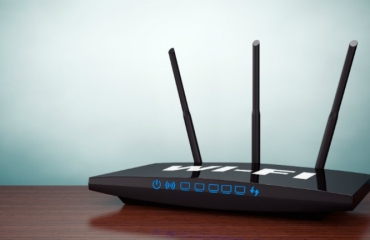Medical IT Solutions Long Island
Reliable Managed IT Services from a Long Island, NY IT Company you can Trust. TechsonDuty provides Proactive IT Services, Support, and Maintenance at a predictable monthly fixed fee.
- We ensure that your IT operations run optimally, predictably, while keeping your critical data safe and secure.
- Our Managed IT Support Service returns better value for your IT dollars by providing a total solution for your IT needs at a fixed monthly fee.
- We provide proactive IT maintenance that detects and solves your IT problems even before they arise, ensuring that your business runs smoothly at all times.
Most Common IT Services for Businesses
- Managed IT Services for Medical Facilities across Long island
- Now that you have a general idea about IT services and their role in the industry, let’s break down some of the most common service types. Some are more general, while others are geared for specific utilities.
- A wide, all-encompassing type of service, managed IT is usually a part of an MSP (managed service provider) which deals with single or multiple IT service needs. Most commonly, managed IT services handle remote server, desktop, and device management. Other common uses involve remote cybersecurity.
Cloud Backup Services for Medical Offices
The cloud is a versatile platform capable of supporting numerous virtual services, such as operating systems and programs. Cloud backups are one part of the service model too, allowing users and companies to store their important information on external cloud servers, circumventing hardware failure or other problems. Cloud backup is typically handled by service providers for monthly/annual fees.
VoIP (Voice Over Internet Protocol) For Offices
The internet and broadband connections allow for versatile communication methods, and VoIP is one of them. This IT service utilizes a business/person’s internet in place of a traditional telephone line, allowing said user to make and receive calls with their ISP. Modern VoIP phones also provide a variety of functions, like voice call and chat options. Typically, VoIP’s also require a service subscription instead of a traditional phone service.
Monitoring Services
Similar to security services and also found with an MSP, a monitoring application does as it sounds: keeps an eye on servers, net traffic, communication, security, and/or anything needed by an enterprise. This service is often employed for smaller companies who lack the resources of larger organizations but still require robust IT support/features. Responsibilities can range from automatically updating software/anti-virus to monitoring the integrity of hardware with SMART programs.
Data Backup and Restoration
Some providers offer data backup with cloud or others with external data centers. Regardless of the method used, data backup involves the preservation of information in case of unforeseen problems, such as natural disaster, malicious intrusions, hardware failure, and more. Often a business refers to this as a “BDR strategy” (backup disaster recovery). For most organizations, having some form of backup is mandatory in order to prevent issues like downtime and critical information loss.
Firewall Services
Firewalls are a common, integral part of any cybersecurity plan. Most companies handle their own or have a firewall for their network – but in some cases will elect a third party for additional firewall options. Options vary based on the provider.
Some firewalls are hybrid models, for instance, which allow for additional control and network monitoring options outside of the normal rulesets. Others may provide a single firewall solution for all internal/remote devices. The needs differ based on the requirements of each individual company.
Among IT service options, the importance of cybersecurity cannot be stressed enough.
Office 365/Email
Office 365 operates as Microsoft’s all-inclusive software package featuring programs like Word and Excel. This is an excellent option for businesses that need diverse software for document organization reasons but would prefer to pay a monthly fee. Also known as a SaaS (software as a service) model. Office 365 also operates as a cloud server and updated email management platform. Office 365 is good for a company relying on emails for communication with a need for organization.
Anti-Virus Protection
A subset of cybersecurity, anti-virus services are perhaps one of the most common types of IT service found in the industry. Mandatory, anti-malware protection comes in the form of software and/or monitoring. Because of the evolving threat malware presents in the modern world, any company relying on IT must have some form of anti-virus installed or service used.
Business Intelligence
Big data plays an enormous role in business success. The downpour of information available to a given company is tremendous and how it’s acquired depends on the tool used. Services that encompass business intelligence analyze, extract, and transform this flood of info into meaningful reports. Anything from financial costs to click-through rates on an article at a certain time of day fall under the umbrella of modern business intelligence.
Remote Support
As the name implies, remote support allows for IT specialists to offer support services from a different location, sometimes controlling a device to assist with troubleshooting issues via the internet. Support can be used for IT assistance, software repair, or other needs. Very useful when IT experts are not physically available, generally handled by an MSP.
Mobile and Remote Networking
Mobile and remote networking allows staff to work from mobile devices and/or remote devices, typically off-site from a physical location. Coincides with BYOD (bring your own device) policies. This is handy because it offers a great range of flexibility for workers, and also allows them to work on projects from virtually anywhere. Useful if a company location is inaccessible for unforeseen reasons.
Networking Services
Networking IT services encompasses everything for the successful implementation of a company network. This involves the building of network infrastructure, the setup of devices like LAN routers and modems, the layout of the networks (such as breaking a network into different tiers), security, optimization, and many other factors. Often a business will build this on-site, however, if local IT experts are insufficient (or unavailable) then third parties are used for the proper implementation of services.
Printing IT Services
Printing IT services includes all services associated with the management, recording, and printing of documentation. Normally handled by a business in-house, but in rare cases where additional help is required, a third party can manage high volumes of printing requests, maintain backups of documentation, and organize said documentation in virtual spreadsheets.









